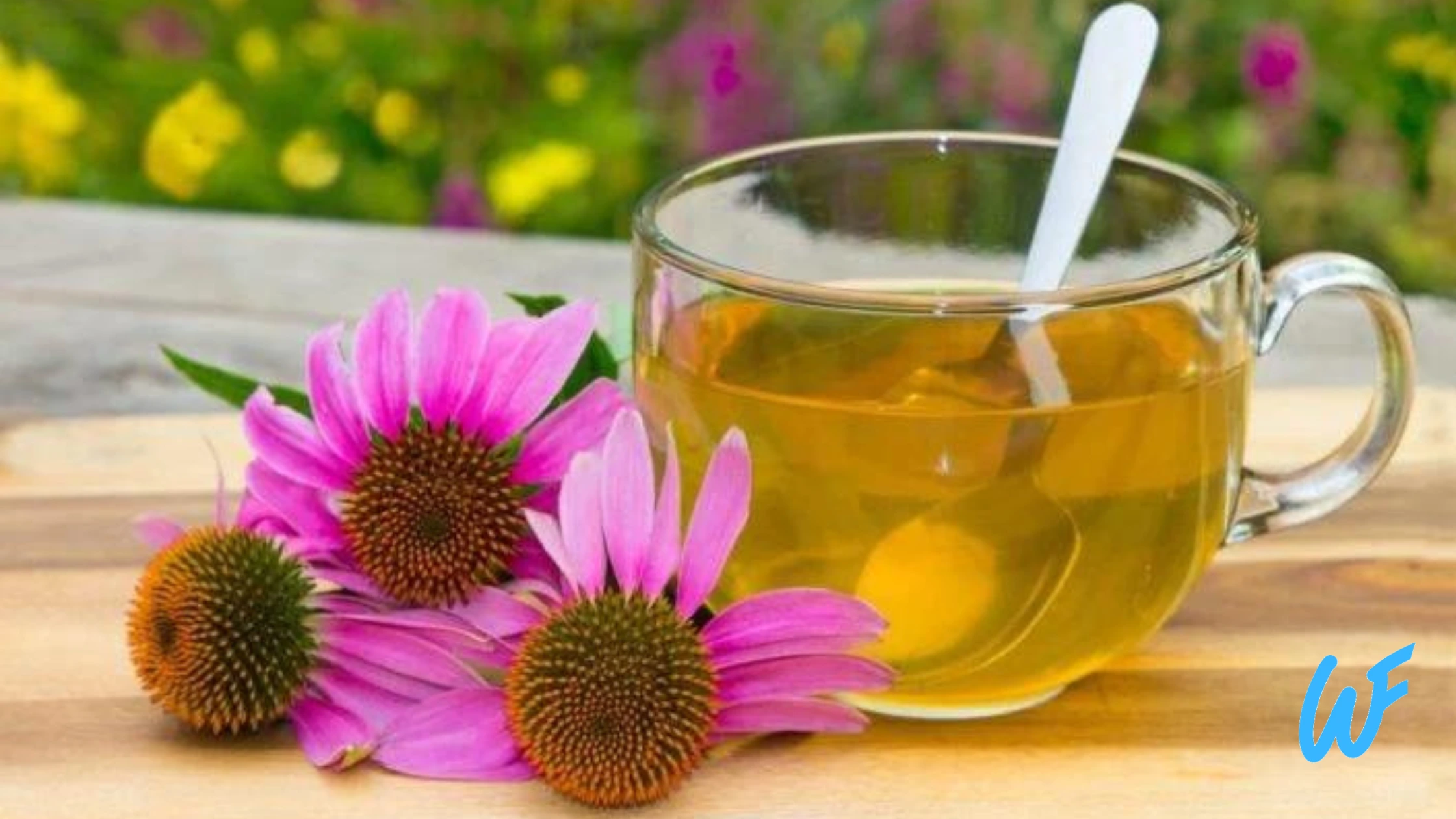
Echinacea Tea
5/5
Echinacea tea is commonly consumed for its potential immune-boosting properties. The echinacea plant has a long history of traditional use in Native American and Western herbal medicine to support immune health and alleviate symptoms of respiratory infections.
INGREDIENTS
- 1-2 teaspoons dried echinacea leaves or 1-2 echinacea tea bags
- 1 cup of hot water
- Optional: honey or lemon for flavor
INSTRUCTIONS
- Boil water in a kettle or heat it in a saucepan until it reaches a gentle simmer.
- Place the dried echinacea leaves or echinacea tea bag in a tea infuser or directly in a teacup.
- Pour the hot water over the echinacea leaves or tea bag.
- Let the tea steep for about 5-10 minutes to allow the beneficial compounds in the echinacea to infuse into the water.
- If desired, add a small amount of honey or lemon to enhance the taste.
- Stir the tea gently to mix in the sweetener or lemon juice.
- Remove the tea bag or strain out the echinacea leaves.
- Pour the echinacea tea into a cup and enjoy it while it’s still warm.
TIPS
- Use high-quality echinacea leaves or tea bags from a reputable source for the best flavor and potential therapeutic benefits.
- Adjust the steeping time based on your preference. Longer steeping times may result in a stronger and more pronounced flavor.
- Experiment with adding other herbs or spices to your echinacea tea, such as a slice of fresh ginger or a sprinkle of cinnamon, for additional flavor variations.
- Echinacea tea is generally considered safe for most individuals when consumed in moderation. However, it is always recommended to listen to your body and discontinue use if you experience any adverse reactions.
- If you have any known allergies, or medical conditions, or are taking any medications, consult with a healthcare professional before consuming echinacea tea.
NUTRITION VALUE
Echinacea tea is an herbal infusion made from the leaves and flowers of the echinacea plant. While it doesn’t provide significant amounts of vitamins or minerals, it is rich in certain bioactive compounds, such as polysaccharides, flavonoids, and alkamides, that are believed to contribute to its potential health benefits.














